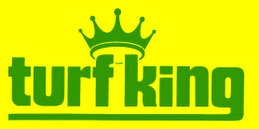 Chinch bugs can be very damaging to a lawn. As seen in the photo, they will eat the grass, but leave the weeds alone.
Chinch bugs can be very damaging to a lawn. As seen in the photo, they will eat the grass, but leave the weeds alone.
Chinch bugs are tiny insects about the size of an ant. Chinch bugs have short legs while ants have long legs. (I compare chinch bugs as roadsters and ants as monster trucks)
If you do end up with too many chinch bugs, the lawn will turn yellow. The chinch bugs suck the sap out of the grass plants. The lawn often looks as if it is lacking water, which in a sense it is. Watering the lawn just helps the grass to stay hydrated so that the chinch bugs can continue to feed.
Chinch bugs prefer the sunny areas of the lawn. I inspected a lawn once that was in front of a north facing building. Most of the lawn had been destroyed- except for about 8 feet near the building. The unusual thing was that the edge of the damage was in a nice neat straight line. I realized that the chinch bugs were happy to feed on the lawn in the sun, but stayed away from the lawn shaded by the building. (Now if they ran out of lawn in the sun, would they have gone to the lawn in the shade?)
We have found that an organic insecticide is usually effective in controlling the chinch bug damage.
We have realized that with insects and chinch bugs in particular that stopping the lawn from going brown is possible without necessarily eradicating all the chinch bugs.
More information on chinch bugs in our website library.
To go to our website
or to request a quote online
June 19/07 Jeff, one of our technicians found chinch bugs nymphs on a sunny lawn in Ancaster today. They had caused a patch about 3 feet in diameter to go yellow. Normally we think of July as the month for Chinch bug damage. I believe the warm weather of the past 3 weeks has hastened the maturity of the chinch bugs and also hastened the damage to the lawns.
Thursday, June 14, 2007
Chinch Bugs
Labels:
chinch bugs,
insect,
organic insecticide
Subscribe to:
Post Comments (Atom)


No comments:
Post a Comment